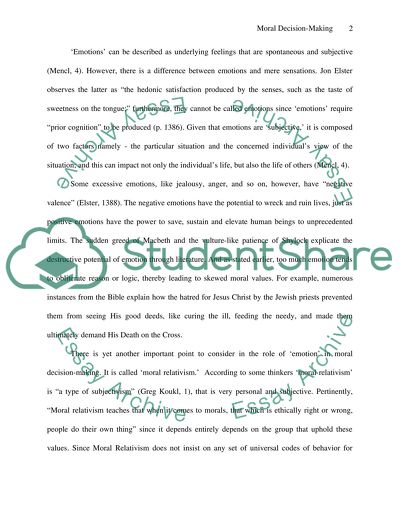Cite this document
(“Emotion and Logic - Inseparable Halves Of Moral Decisions Essay”, n.d.)
Retrieved from https://studentshare.org/psychology/1516608-are-reason-and-emotion-equally-necessary-in-justifying-moral-decisions
Retrieved from https://studentshare.org/psychology/1516608-are-reason-and-emotion-equally-necessary-in-justifying-moral-decisions
(Emotion and Logic - Inseparable Halves Of Moral Decisions Essay)
https://studentshare.org/psychology/1516608-are-reason-and-emotion-equally-necessary-in-justifying-moral-decisions.
https://studentshare.org/psychology/1516608-are-reason-and-emotion-equally-necessary-in-justifying-moral-decisions.
“Emotion and Logic - Inseparable Halves Of Moral Decisions Essay”, n.d. https://studentshare.org/psychology/1516608-are-reason-and-emotion-equally-necessary-in-justifying-moral-decisions.


